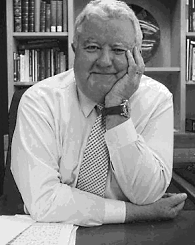|
News & Views item - December 2011 |
![]() Chief Scientist Tells Forum: Teaching of Science Courses is a Critical
Element in Our Future. (December 13, 2011)
Chief Scientist Tells Forum: Teaching of Science Courses is a Critical
Element in Our Future. (December 13, 2011)
 Yesterday
Australia's Chief Scientist, Ian Chubb, in the
opening address
Yesterday
Australia's Chief Scientist, Ian Chubb, in the
opening address![]() to the National Forum on Education in the Biomedical Sciences at the Australian
Academy of Science's Shine Dome said: "There is no doubt that the teaching of
science courses is a critical element in our future – especially if we want that
future to be safe, secure and sustainably prosperous... And we don’t start from
a particularly rosy position."
to the National Forum on Education in the Biomedical Sciences at the Australian
Academy of Science's Shine Dome said: "There is no doubt that the teaching of
science courses is a critical element in our future – especially if we want that
future to be safe, secure and sustainably prosperous... And we don’t start from
a particularly rosy position."
And although Professor Chubb focused on the biomedical sciences (which he defines as biochemistry, cell biology, genetics, microbiology, human biology, medical science and pharmacology) he was at pains to point out that he: "would find it hard to argue that we can have robust biomedical sciences alongside weak or weakening physics, chemistry, mathematics and statistics. Biomedical sciences without the foundation that those disciplines offer would be pretty flimsy."
The Chief Scientist noted that "there has been a fall in participation in science subjects in year 12 that should alarm us all. Some work done for us by the AAS shows that between 1991 and 2007, Biology enrolments are down from 36% to 25% of students enrolled in year 12; Chemistry from 23% to 18% and Physics from 21% to 15%". And while he agreed that the decline appears to "have slowed" it was continuing.
Why? -- "Didactic approaches riddled with formulae and content that is disconnected from what the students see and hear around them in every day life... compounded by recipe-based practicals [rather than] imaginative ones that stimulate thinking.
"[T]he question ... for you is... how to harness [the good teaching materials and methods available] and to provide a science education in our schools and universities that interests students in science and ensure that it is an interest that grows rather than dampened by the way we go about offering science to our students."
And while Professor Chubb agrees that the wide spread of students' intelligence and abilities pose teaching challenges "we have to work hard and probably differently to ensure that all our students are well prepared for their university studies AND then receive what they are entitled to expect: that if a university enrols them in a program, they are entitled to expect that with diligent application they have a fair chance of succeeding -- [but how?]... how do we learn from each other and advance the cause – we know that in contemporary times, by working as individuals or in small groups it is just not going to work. Active and strategic collaboration is needed. This forum has all the right foundations and the right motivation".
The former vice-chancellor of the Australian National University noted that the Australian Academy of Science and the Collaborative University Biomedical Education Network (CUBENET) is working "to identify and address the key issues and challenges facing biomedical science educators in the 21st century and in the process to:
develop a leadership group of active tertiary biomedical academics at the national level to create a program-wide approach to the biomedical curriculum.
maximize the efficiency of development, dissemination and adoption of innovative curriculum elements,
aggregate, filter and connect ideas and information with the other teams and networks to achieve effective, transferable and sustainable solutions.
"We need more science, more people with a science – based education, more people comfortable with science and more people prepared to help lead the community through the scientific complexities of the modern world."
__________________________________
It's to be hoped that Professor Chubb will be able to get worthwhile responses from his new minister (the prime minister gave no indication that she wishes to transfer the Office of the Chief Scientist to the Department of the Prime Minister and Cabinet) as well as that of the Minister for School Education, Peter Garrett.
The Australian Mathematical Sciences Institute (AMSI) has indicated that it "will be working closely with the Chief Scientist to explore measures to increase enrolments in mathematics and statistics subjects at university level... follow[ing] the Government’s recent decision to axe the HECS discount for mathematics and science subjects without investing the money in alternative measures to boost enrolments"; AMSI notes "there is a predicted 55% increase in demand by 2020 for mathematics and statistics PhD graduates across all sectors of the economy, yet actual workforce numbers are declining".